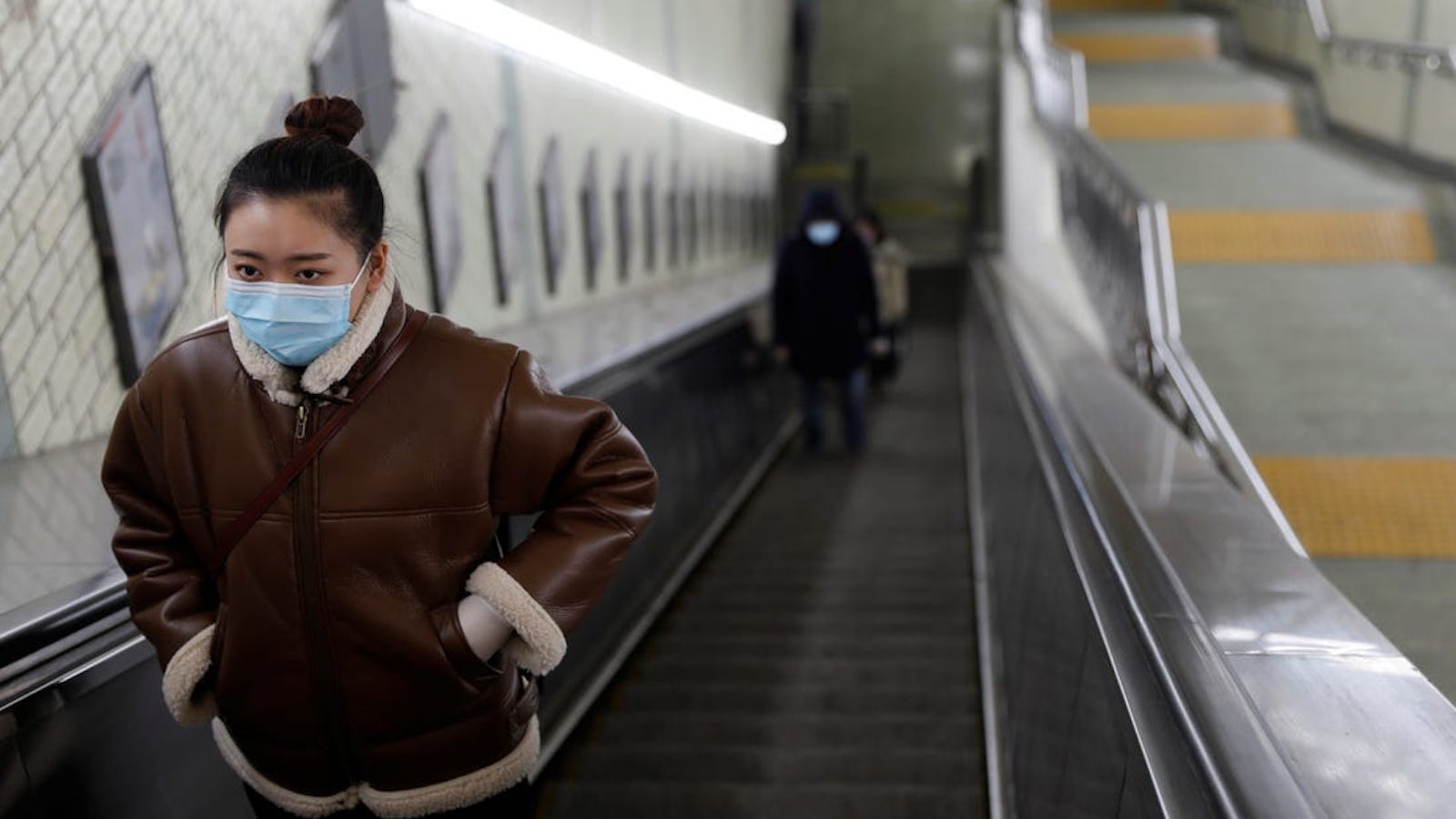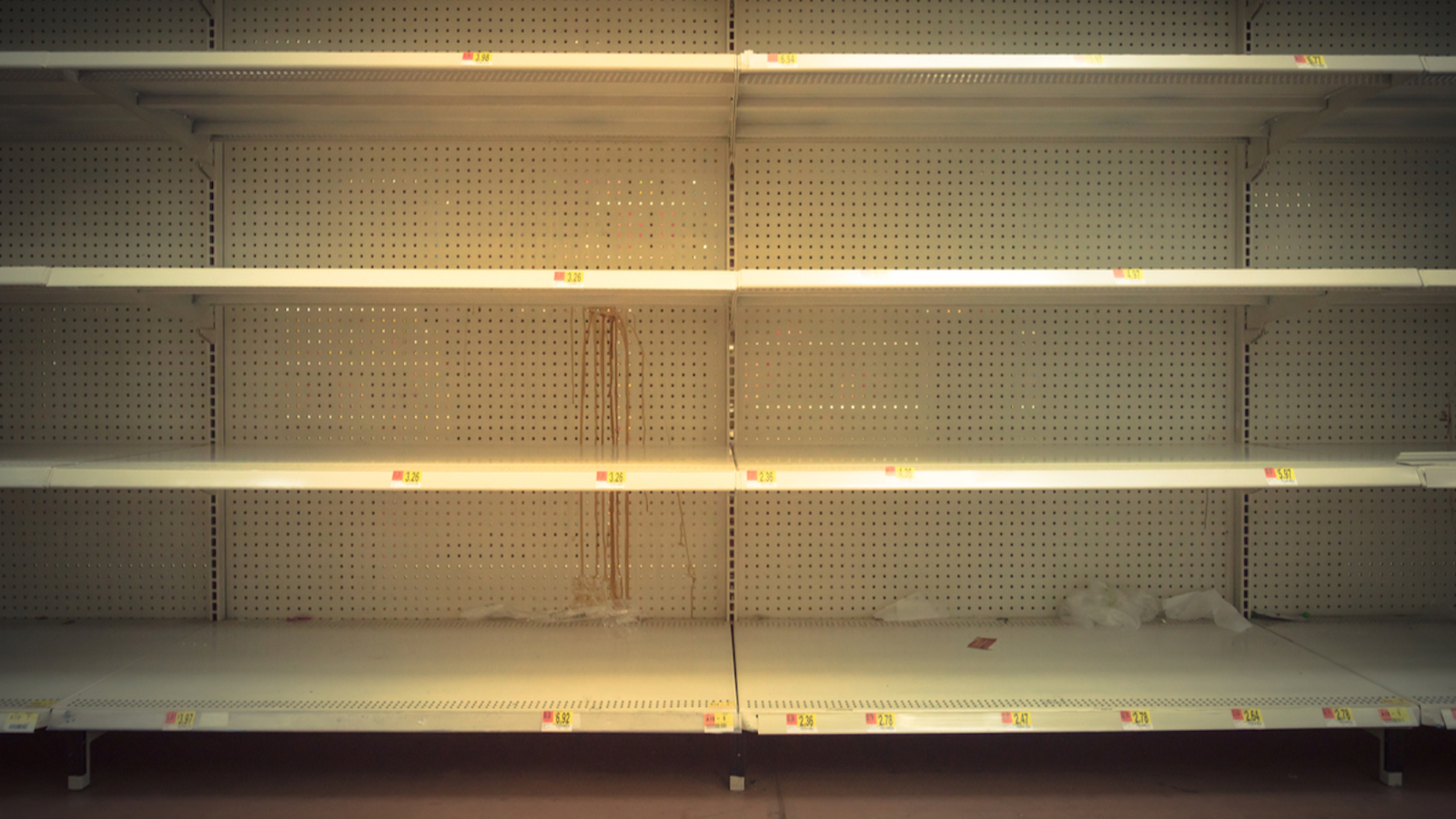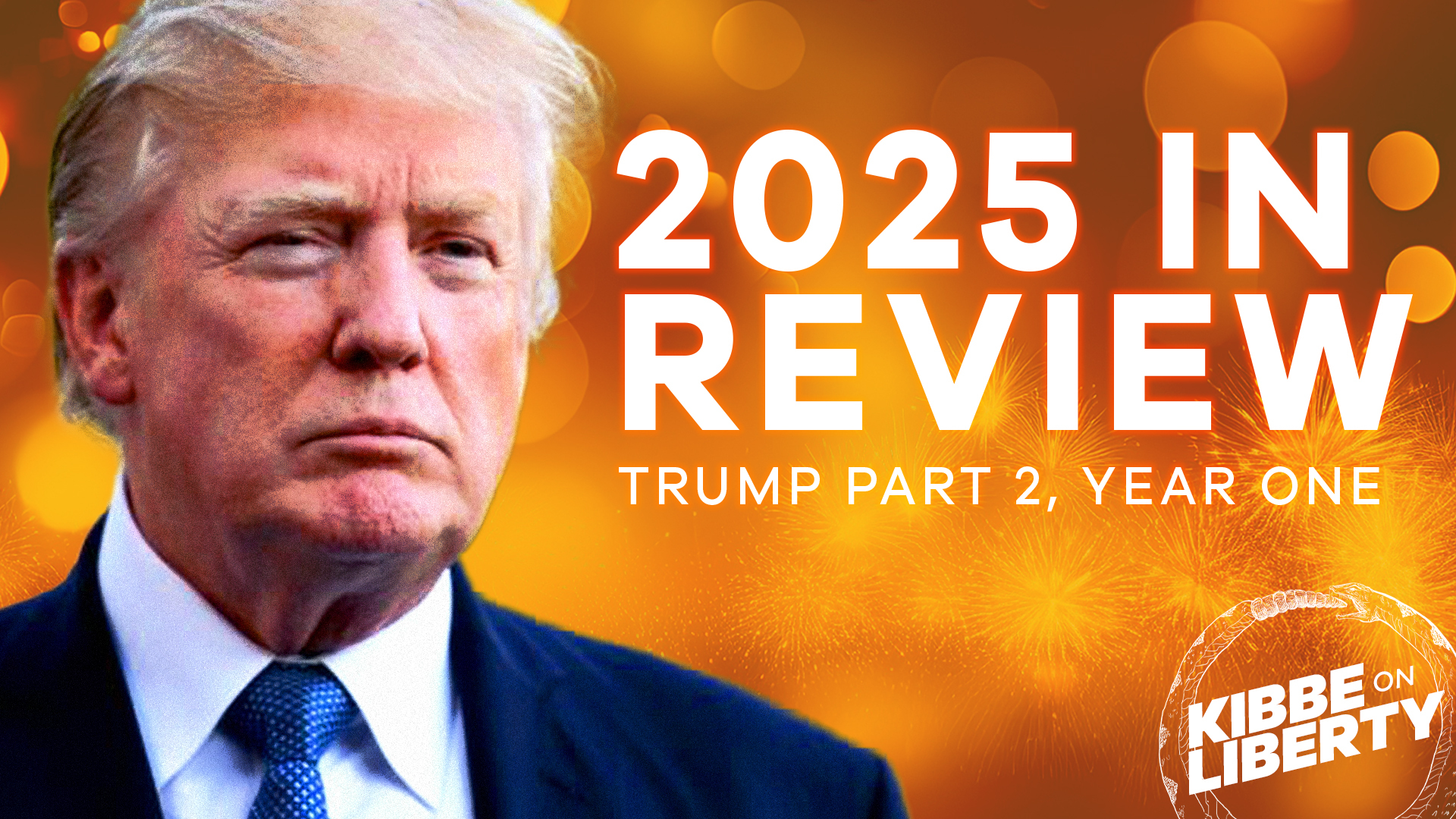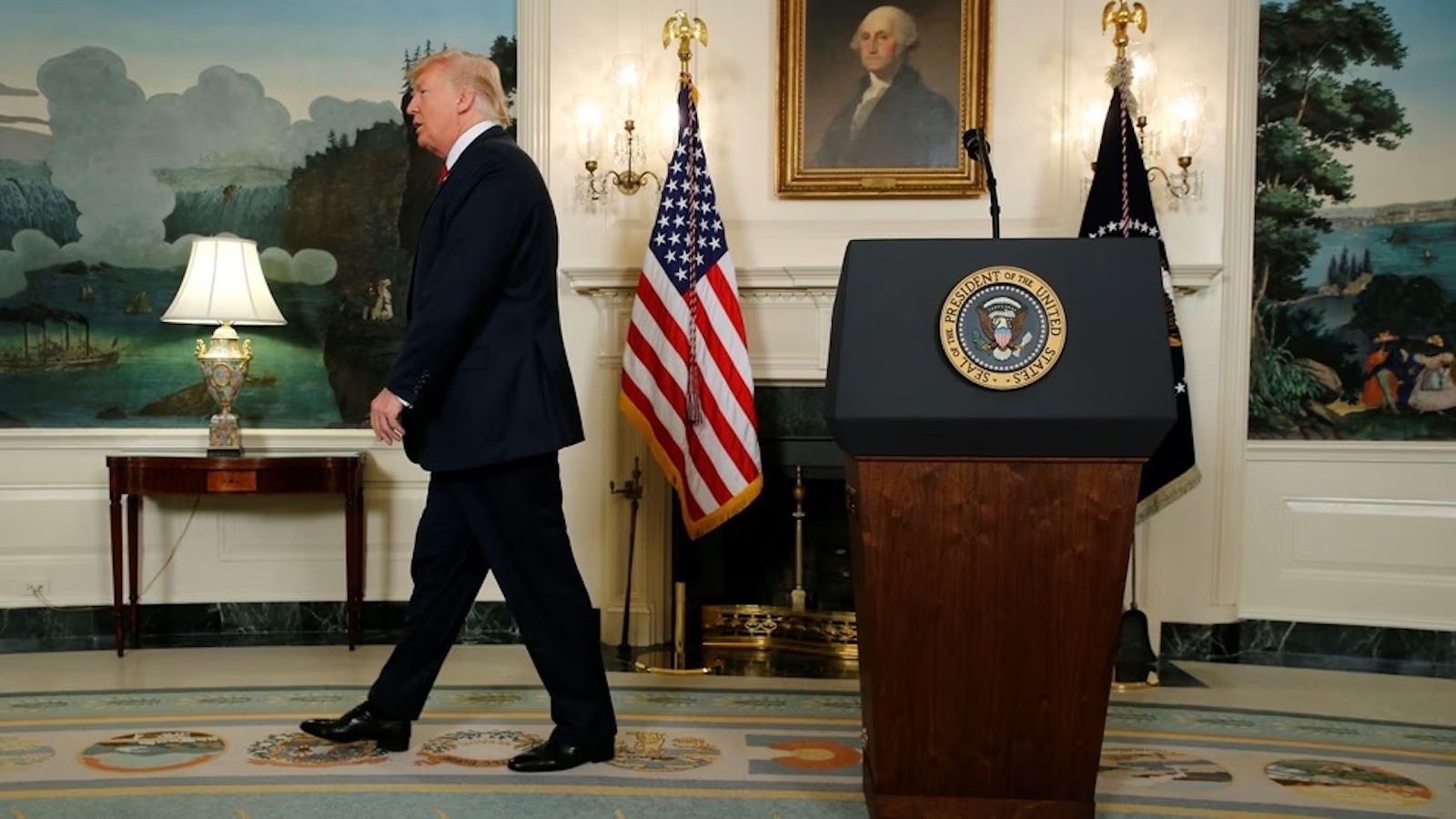
During a Pandemic, Who Will Keep Us Fed?
I was chatting today with a doctor friend currently in the Philippines, wanting his take on measures to limit the contagion of COVID-19. “What do you think of all this craziness?” I asked. “The medical side of me thinks it almost makes sense to try and flatten the epidemic curve, but I feel non-medical people are making the decisions and a lot of it doesn’t make sense.” Philippine strongman Rodrigo Duterte has imposed a draconian quarantine there, first in Manila, and now on the entire island of Luzon, home to some 57 million people. It’s total chaos.
Across the globe, politicians, wanting to appear proactive and in charge, are making sweeping decisions not so unlike the actions taken by Duterte.
And it is safe to say that “non-medical people” are calling the shots, making political decisions that may or may not be in the best interest of public safety. But I’m neither a doctor nor a scientist specializing in infectious disease, so I’m not particularly qualified to discuss the best precautionary measures to minimize the human toll of the pandemic.
I do think it makes sense to isolate yourself as much as possible, if you can afford to do so. Don’t take unnecessary risks, and be super-cautious to not expose others to any threat of the virus. Read up on the best medical advice available, and do everything you can. This is what responsible folks do.
I may not be a doctor, but I do know something about economics. I know that there is a link, globally, between economic prosperity and health. And I also know that non-economists with lots of discretionary authority are making monumental economic decisions that will cause tremendous supply disruptions. Unintentionally, these top-down directives will also do harm to our health by undermining our ability to deal with COVID-19 and the many other challenges we will face because of it. Consider, for instance, the creation of new and needed medical innovations, like tests and treatments, and whether or not the government allows them to be available. What about the supply of hospital beds for patients, and the health care professionals and trained staff to treat them? These are ultimately questions about available resources, costs, competitive prices based on demand, supply chains, regulatory barriers, and the labor market for doctors, nurses, and technicians.
We can’t mandate more of the medical goods and services we need into existence, but politicians could mandate them away if they’re not thoughtful in their attempts to “do something” decisive.
Which gets us back to curfews, quarantines, and other forms of government-mandated social isolation. Even people with the means and the flexibility to work from home and fully isolate still need to find ways to provide food and other essential goods and services for their families. And, if they’re unlucky despite the best of precautions, emergency medical services. In other words, like it or not, we are all interdependent on other people still willing, able, and allowed, to do their jobs. That means the entire global supply chain; a distributed network of farmers, ranchers, pickers, packers, truck drivers, shippers, distribution centers, grocery stores, delivery services, and the thousands of other functions I don’t even know about, and untold millions of people with special skills you don’t have.
So when I see politicians mandating, or regular people demanding, as a moral imperative, that all human interaction cease immediately until the risk of infection ends, I know that they are probably not considering the consequences of such a policy. They are likely not thinking about, or are totally unaware of, the incredibly complex division of labor and distributed responsibilities that drive our prosperous modern economy. Millions, even billions of people you don’t know, are all working together constantly to ensure that each of us gets what we want and need to sustain our lives. We all contribute to this beautiful process, each of us deciding for our own selves, who does what best.
Something I read about all of the proposed measures to battle COVID-19 reminded me of a favorite passage from the book Economic Sophisms, by French economist Frédéric Bastiat. Here, writing in the mid 1800’s, he asks: Who keeps Paris fed? And why is it that so few Parisians seem a bit concerned about the process that keeps them fed?
One of the many reasons people don’t like economists is that we are always going on about the importance of free exchange, the profound benefits of the division of labor, economic tradeoffs and the unintended problems created by actions motivated, perhaps, by the best of intentions. There is a cost and a benefit to everything, and sometime we are forced to choose. “You can do that, but did you consider that this other thing might happen as a consequence?” In a social media driven society that seems to hunger for quick fixes to complex problems, economic realities can be a real downer. Why, a hashtag trending on Twitter asks, can’t everyone just #StayTheF**kHome? But in a society that depends on the distributed expertise of each and every one of us, I’m willing to be that guy, the one offering unsolicited economic advice: There are unseen, unintended consequences of the currently proposed public policies intended to keep us safe, policies that will make us less safe and less able to take care of ourselves and others that need help.
Be safe out there. And try to stay calm. We can do this, together, provided that we are free, not just the doctors and economists, but all of us, doing what we can, each doing our part.




Ron Rafajko
I totally agree!
YES, YES, YES! “There are unseen, unintended consequences of the currently proposed public policies intended to keep us safe, policies that will make us less safe and less able to take care of ourselves and others that need help.”
ECONOMIC COLLAPSE for those left in the financial wake of this needless social isolation that is temporarily closing businesses, many of which will NEVER reopen!
Social distancing for everyone will destroy our economy and hurt more people financially than the virus will. Stay away from the four vulnerable groups (over 65, those with severe health issues, pregnant moms/new babies, and those that care for these three groups of people), isolate them, everyone else go and live your life as before.
My 2 cents.
~Ron in Utah
Jamie
The governments around the world have caused an off shore earthquake and at the current time the water is some what calm but this will be a huge tsunami that will hit global shores with devastating financial results. It’s called “The Law of Unintended Consequences” Something very few people and politicians understand!
Mark Swanson
Wall Street Journal had a good article on this yesterday.
https://www-wsj-com.cdn.ampproject.org/c/s/www.wsj.com/amp/articles/questioning-the-clampdown-11584485339
CNBC is predicting a 20% decline in the economy this year. It is proven that health goes down during a recession.
Not only will many financial lives be ruined but our over health may be worse than if we let focused on the vulnerable and let the virus take its course among the rest.
Tim Hong
Matt,
You are not alone in your thoughts.
“There are unseen, unintended consequences of the currently proposed public policies intended to keep us safe, policies that will make us less safe and less able to take care of ourselves and others that need help.”
Been trying to share this sentiment since the onset but I’m mostly met with “why do you hate old people and want them to die?”
Keep up to good work.
Seeing Orange
Don’t give up Tim. We need more intelligent and thoughtful people like you asking these questions and looking at BOTH sides of the equation – so to speak.
Seeing Orange
Excellent article and dares to highlight the need to understand potential unintended consequences of our draconian lockdowns and a ‘one-size fits all’ / worst case scenario’ that is used to determine precautionary measures everywhere.
There are real costs and consequences to lockdowns and cancellations, closures, etc. whether we care to quantify them or not. Sadly, many on social media label such common sense questions and discussion as “uncaring”, “insensitive”, etc. But, ignoring these unintended consequences won’t keep us from paying for them. The bill for this collective “cure” is already coming due and it may cause long term effects that are more painful than the pandemic.
geri Koslowsky
I agree We need to let God direct our steps. HE is in control!
PM
Here we have the definition of ignorance.. your “god” won’t know how to work the ventilator when your lungs fail, my dude.
PM
Humans have proven to make wrong decisions when given the opportunity. You talk and worry about the economy, that makes sense – but what about the greater human collective effect on the environment? We are allowed to make all of our own decisions there, for the most part, and yet we continue to buy/use single-use plastics and all other kinds of environmentally damaging products. So if we are given choices to avoid “certain populations”, do you really think we will? No. We haven’t. That’s why Italy is where they are at right now. That’s why the United States will very soon join them. We have groups of people still participating in large gatherings that further spread the virus. We literally are not making the correct choices when given free choice, so yes, it should be taken away because it’s affecting others around those people. People suggesting that everyone should live their lives and just avoid certain populations is no different, in my opinion, to the people that say “this is only killing the elderly and immunocompromised.” That inherently implies those groups are expendable and should be the only ones held in isolation. Not very “Free the People” of you to sit on that hill..
This is a terrible article and take on the whole situation and you should really rethink what you push to people’s inboxes. Use your platform to spread the right message. Businesses and people need to adapt and overcome to ensure we are all around at the end of this. Good luck and hopefully you and your loved ones stay healthy while you wish to wander about and further transmit a virus during a pandemic. Wild idea, in my opinion.
Callie Ricketts
This is utter bullshit that is incredibly selfish. People are going to die. TO DIE, if we don’t impose a quarantine. This is something we can actually combat and come together as a nation and a species to fight. We are finally in the 21st century when we can use our rapid communication and technology to set up social safety nets in response to this virus. I think it is excellent that the administration is considering sending taxpayers payments, passing sweeping paid sick time. We can push as citizens for these things to help alleviate the costs. You should really be ashamed of yourself for this. I lost an incredible amount of money with the falling of stocks but I am still sure that this is the right move, to protect as many americans as we can, and get a hold of this pandemic, together. I am unsubscribing from this organization that I have liked for a while because of such an ignorant article. Get it together and think of the common good.
Kay
Isolation is possible for some people but others must continue to interact or we are doomed. Health care workers must continue to be available as well as people attending to the elderly and severely disabled.
Some states have closed down restaurants and places where truckers go to grab a bite to eat, relax, or sleep. How are our groceries stores and pharmacies going to be stocked? Drivers need breaks to drive safely.
Many restaurant workers need money now to pay for rent and usually get meals at work. How do they survive while waiting for a government check? What about the seniors without food now that Meals on Wheels is cancelled?
How do the people without smart phones or computers apply for these checks or even know what is going on with all libraries being closed? (Many rely on their computer resources).
I was in isolation after Irma–no electricity, phone, internet, TV, all stores closed, streets flooded and without traffic lights, curfew with police checks, smelly bags of garbage piling up–and scrounging for canned tuna fish (no refrigerator). You start hallucinating about decent food and a working sewage system.
When we have thousands of homeless persons living in filth, many of them children being robbed of their futures, I do not place my faith in the government to save us.
I applaud our governor’s closure of our “state owned” beaches because outsiders thoughtlessly congregate in hoards risking our health. I realized that mom-and-pop businesses catering to them might fail. As the article said, there are trade-offs.
Paul
Very well written. People unschooled in political philosophy, economics, or history still feel entitled to an opinion. Politicians are a special class of ordinary people but with power to compel others. It’s a dangerous mix.
John Hunt, MD
The Federal Reserve recognized that the supply of toilet paper is too low compared to demand, and so they’re printing up 700 billion new pieces of toilet paper. Sorta makes sense. Then the government can drop 1000 pieces of this green toilet paper by helicopter on everyone who needs toilet paper. The rich won’t get this toilet paper delivered by helicopter, but the rich who got rich by being cronies will assuredly get lots more than 1000 sheets each, delivered directly by courier. to clean up all the poop they caused by being so crony. And a couple of well-known Wall Street entities will take 2% of this toilet paper for themselves. Just because they do. Who knows why…
Holly
Very well said. I’ve been reading quite a few things lately that echo this sentiment. We will be suffering from the unintended consequences of governments’ mandates for decades to come. South Korea didn’t use these draconian measures, and so far the UK and Denmark haven’t either. No one is even sure if they work.
LibertarianThinker
Our economy was already set to be devastated when China closed a majority of their factories for 2+ months. There is nothing we can do to change that, many companies already had scaled back because of China’s decision. Also, the reason China opted to close a majority of their factories, destroying their own economy, was because they knew a massive loss of life would not only destroy the economy, but destroy the means to rebuild the economy. At this point, all we can do is try to maximize the saving of lives, by a strict quarantine, in order to have the means to rebuild our economy.
Wendy
Unintended consequences? Let’s see…
I”m MORE LIKELY to get sick. Why? Because they tell us to “go online” and then shut down all public access wi-fi. OK, the wi-fi signal is still there, but I have to sit outside, in below-freezing temperatures (reduces my resistance to infections) on the stoop (dropped food and trash blown in by the wind, sitting on dirt from countless shoes and doggy-paws stopping on their walks), squinting at my screen in the glare of the sun (it’s a little warmer in the afternoons, but the building faces west, so more dealing with the sun). And before this late snow, I saw mosquitoes about, so when the snow does melt, I’ll be worrying about mosquito-borne illnesses.
My sister works at a food distributor–first they were dumping all kinds of high-end foods (ordered for hotels and high-end restaurants that can’t adapt to “carryout only” policies), then they’re cutting orders from suppliers, who are cutting orders from producers. So we have farmers dumping milk down the drain, because the bottom has fallen out of the already-low prices for milk. Chapter 12 filing in our state are already double what they were for all of last year. And vegans, stop smirking: they’re plowing spring crops back into the soil for lack of buyers. It’s going to take weeks to the better part of a year for the supply chain to fill up again, and politicians don’t want to give a date so the system can start ramping up again. If we restart in June, they’re going to plant quick crops. If it’s August, they’re going to plant slower-growing and/or non-food crops. And the longer they don’t say anything, the more the industry gets stressed.
Then you have “non-essential” businesses. What’s “non-essential” for 2-3 weeks may not be “non-essential” for months. Heck, if you can go years without it, then you didn’t really need it at all! But all “non-essential” is not shut down. If I wreck my shoes (No, I would not order something like that on-line; I want to check the fit before I buy) and suddenly need a new pair, I can’t go to the shoe store, because it’s “non-essential,” but I CAN go to WalMart, because, since they have a grocery, they can stay open–and sell other things while they’re at it. So we’re punishing the small, specialized store to benefit the “big box” retailers.
Plus, you have all the “not COVID-19” but caused by COVID-19 deaths. How many people committed suicide in the Great Depression? Do you really think it’s not happening now? Child abuse reports are down–because kids aren’t in places where people can see the abuse. Domestic abuse is up, because families can’t get away from each other. And look at NYC, where they’re telling EMTs not to bring cardiac arrest victims in if they can’t get a heartbeat in the field. How many are dying of “other diseases” because social distancing is reducing the liklihood of them getting to a hospital. These are all a result of COVID-19, but not counted as COVID-19 deaths.
Len Pohlar
Great article, Matt. At a recent Zoom call with Free the People, I mentioned the need for individual resilience. This has been on my mind recently since I have one son deeply into the inner city urban life and another one dedicated as a nature sanctuary land manager deep in the hills of southern Ohio. One is not prepared for an urban breakdown and is struggling to keep his business intact due to the Covid economic chain disruptions you speak of. The other is totally independent and self sufficient in every way. In case of economic tragedy in my household my wife & I, and our bug out bags, will be heading for the sanctuary! The difference in resilience between my two sons and discussions such as in this article remind me to up my own level of resilience and to seek its birth elsewhere in my family. Have a great day. I deeply enjoy the Liberty Pub events.